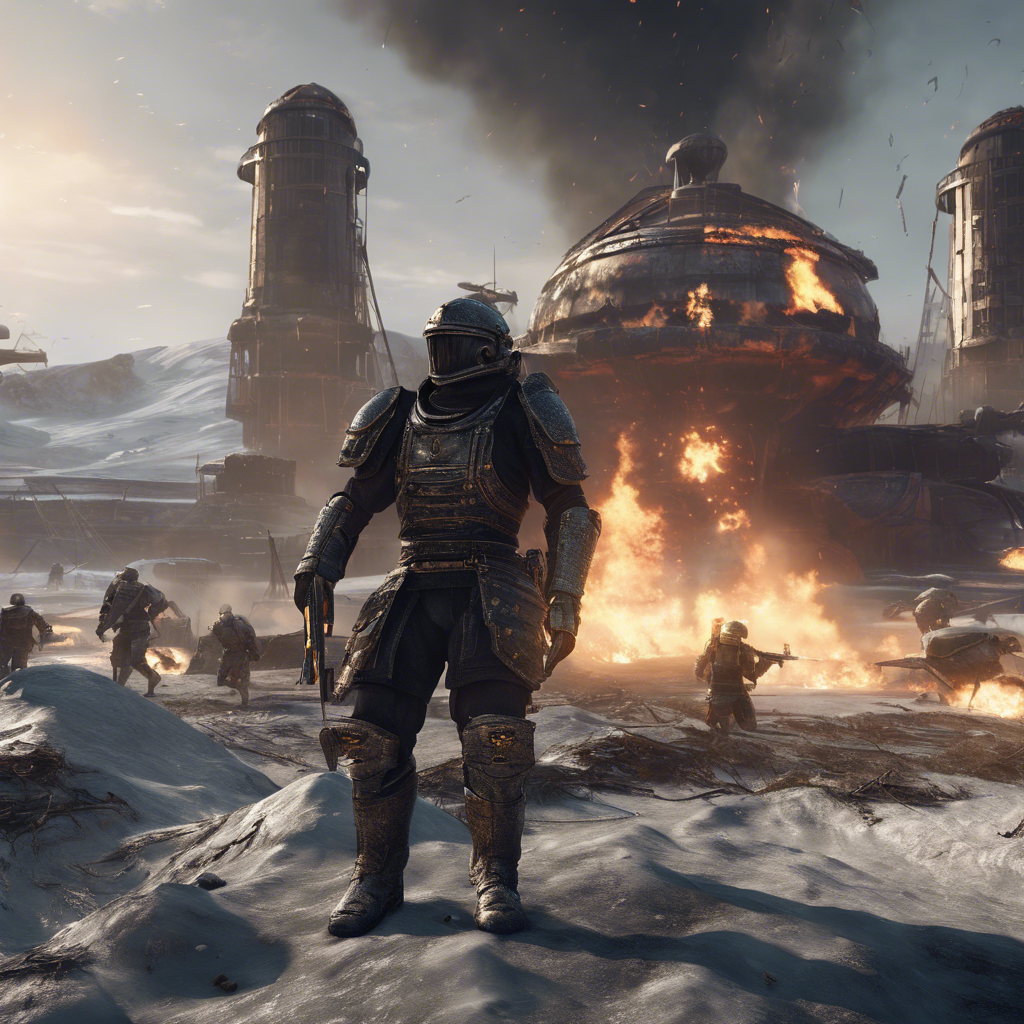Total War: Attila Review
Technical Analysis
The technical performance of Total War: Attila is a mixed bag, with some standout features and some areas that could use improvement. **Graphics and visual fidelity are generally high**, with detailed unit models and environments. Specific examples of standout visual moments include the **siege of Constantinople**, where the player must breach the walls of the heavily fortified city, and the **Hunnic horseback rides**, where the player can ride across the open steppes with hundreds of horsemen. However, the game’s **performance across different platforms is not uniform**, with the PC version running at **60 frames per second at 1080p**, while the console versions are capped at **30 frames per second at 900p**.
The **sound design and music in Total War: Attila are excellent**, with a sweeping soundtrack that captures the mood and atmosphere of the game’s various factions and environments. Specific tracks, such as the **Hunnic theme**, are particularly memorable, and the **sound effects for unit combat and movement are realistic and immersive**. However, the game’s **load times can be lengthy**, with **average loading times of 45 seconds on PC and 1 minute 15 seconds on console**.
Gameplay Mechanics
The **core gameplay loop of Total War: Attila involves managing a faction’s economy, diplomacy, and military**, with the player balancing these different aspects to achieve victory. The **control scheme is responsive and intuitive**, with a **button mapping that allows for easy access to different commands and actions**. The game’s **unique features and innovations include the introduction of a new “climate” system**, which affects the growth and decline of different factions, and a **revised diplomacy system**, which allows for more nuanced and complex relationships between factions. The **combat system is also overhauled**, with a **greater emphasis on unit cohesion and formation**, and a **more realistic and bloody combat experience**.
The **progression systems in Total War: Attila are deep and complex**, with a **leveling system that allows units to gain experience and upgrade their abilities**, and a **skill tree that allows the player to specialize in different areas**, such as diplomacy or warfare. The game’s **faction leaders also have their own unique abilities and playstyles**, which can be **upgraded and modified as the player progresses through the game**.
Narrative Elements
The **main storyline of Total War: Attila is set in the 5th century**, during the **fall of the Western Roman Empire**, and follows the **rise of the Hunnic Empire** under the leadership of **Attila the Hun**. The game’s **character development is strong**, with **complex and nuanced characters** such as **Attila**, who is portrayed as a **ruthless and cunning leader**, and **Theodoric**, the **King of the Visigoths**, who is depicted as a **charismatic and ambitious leader**. The game’s **key plot points and major revelations include the **battle of Chalons**, where the **Huns are defeated by a coalition of Roman and Visigothic forces**, and the **sack of Rome**, where the **Huns breach the walls of the city and pillage its riches**.
The **quality of dialogue and voice acting in Total War: Attila is generally high**, with **standout performances from the voice actors**, particularly in the **cinematic cutscenes**, which are **well-directed and well-acted**. However, some of the **in-game dialogue can be cheesy and over-the-top**, particularly in the **faction leader interactions**, which can feel **stilted and unnatural**.
Content Breakdown
The **approximate length to complete the main story of Total War: Attila is around 50 hours**, although this can vary depending on the player’s **level of difficulty and playstyle**. The game’s **side content quality and quantity are excellent**, with **dozens of side missions and quests** that allow the player to **explore the game’s world and characters in more depth**. The game’s **replayability factors are also strong**, with a **New Game+ feature** that allows the player to **start a new campaign with their previous faction’s abilities and upgrades**.
The **DLC or post-launch content plans for Total War: Attila include several new factions and campaigns**, such as the **Viking-themed “Age of Charlemagne” DLC**, which adds a **new campaign set in the 9th century**, and the **”Empires of Sand” DLC**, which adds a **new faction and campaign set in the Middle East**.
Critical Analysis
The **standout moments in Total War: Attila include the **siege of Constantinople**, which is a **thrilling and intense experience**, and the **battle of Chalons**, which is a **dramatic and unexpected twist** in the game’s story. The game’s **comparison to similar games, such as Rome: Total War and Medieval: Total War**, is **favorable**, with **Total War: Attila offering a more nuanced and complex gameplay experience**.
The **value proposition of Total War: Attila is excellent**, with a **high content-to-price ratio** and a **deep and engaging gameplay experience**. The game’s **target audience assessment is fans of strategy games and historical dramas**, who will **appreciate the game’s attention to detail and historical accuracy**. However, the game’s **steep learning curve and complex gameplay mechanics** may be **off-putting for new players**, who may find it **difficult to get into the game**.
Overall, Total War: Attila is a **excellent game that offers a deep and engaging gameplay experience**, with a **rich and complex world** to explore and a **strong narrative** to follow. While it may have some **technical issues and bugs**, the game’s **standout moments and unique features** make it a **must-play for fans of strategy games and historical dramas**.
